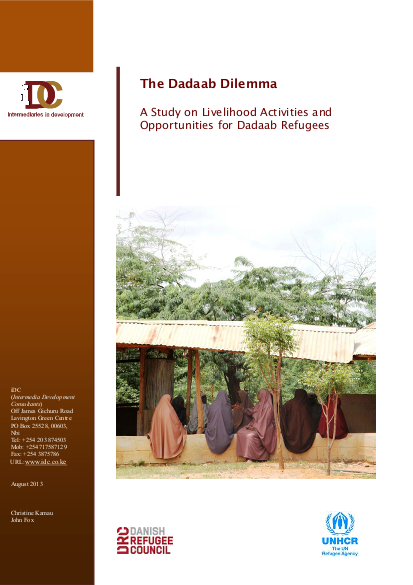
The emphasis of this study is not so much on collecting more data, but on analysing the issues that impinge on developing effective livelihood strategies for the refugees – both those who will go back to Somalia, and those who will stay, either temporarily in the camps, or (to be realistic) elsewhere in Kenya.
Study objective
A Joint Assessment Mission (JAM) of 20121 argued for increased support for vocational training, and an expansion of existing activities in order to improve self-reliance opportunities for the refugees – and also for vulnerable host community members. In line with that recommendation, this study – commissioned by the Danish Refugee Council – is geared towards developing a strategy to support planning of livelihood interventions implemented by partners operating in the Dadaab refugee camps.